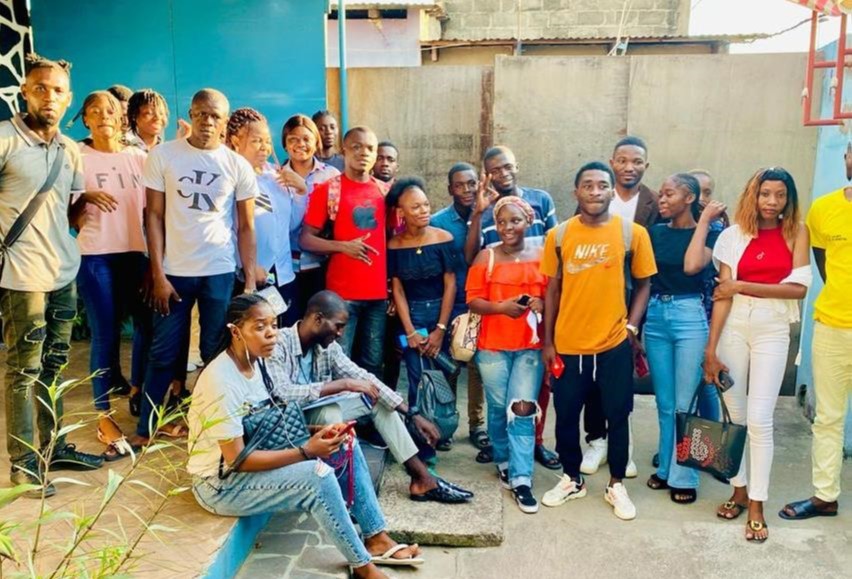
"We are delighted with everything you have told us, it has opened our eyes and awakened our consciences, because we were in ignorance. The topics covered are necessary information/tools that will enable us to get by in society. We believe that the YCW is an ideal movement for awareness-raising and social integration." Makita Sanielle Chamelia

Context and reality of youth in Congo Brazzaville: Congo is a Central African country with a population of over 5 million, and high percentages of poverty (around 70% in urban and rural areas combined). The main sources of employment are agriculture and fishing, but these are not the most important economic activities, mining and oil being the country's main sources of revenue.
A large proportion of Congolese youth are engaged in economic activities in the informal sector, such as agriculture and commerce, and although the oil sector is the country's most important economic activity, the majority of the young population and young women do not have access to decent jobs in that sector. In addition, 53% of young people are included in the unemployment statistics. Moreover, the poverty and social vulnerability of young people are exacerbated by inequality, job instability and gender discrimination. Against this backdrop, young workers are mobilizing to find ways of coping with these realities, in order to achieve a genuine transformation of their daily lives and to live in dignity.
How are young Congolese workers mobilizing?
For some years now, young people involved in the Congo YCW have been creating spaces that promote the good human development and dignity of young workers through discussion and analysis of the various concerns raised by young people themselves.
A dozen young leaders from the YCW's grassroots groups in Brazzaville have become true protagonists, identifying their main problems such as: job instability, high levels of unemployment, lack of technical training, the essential role of vocational training in access to employment and competitiveness, the country's political situation as one of the causes of these different situations, as well as the government's lack of interest in addressing this reality.
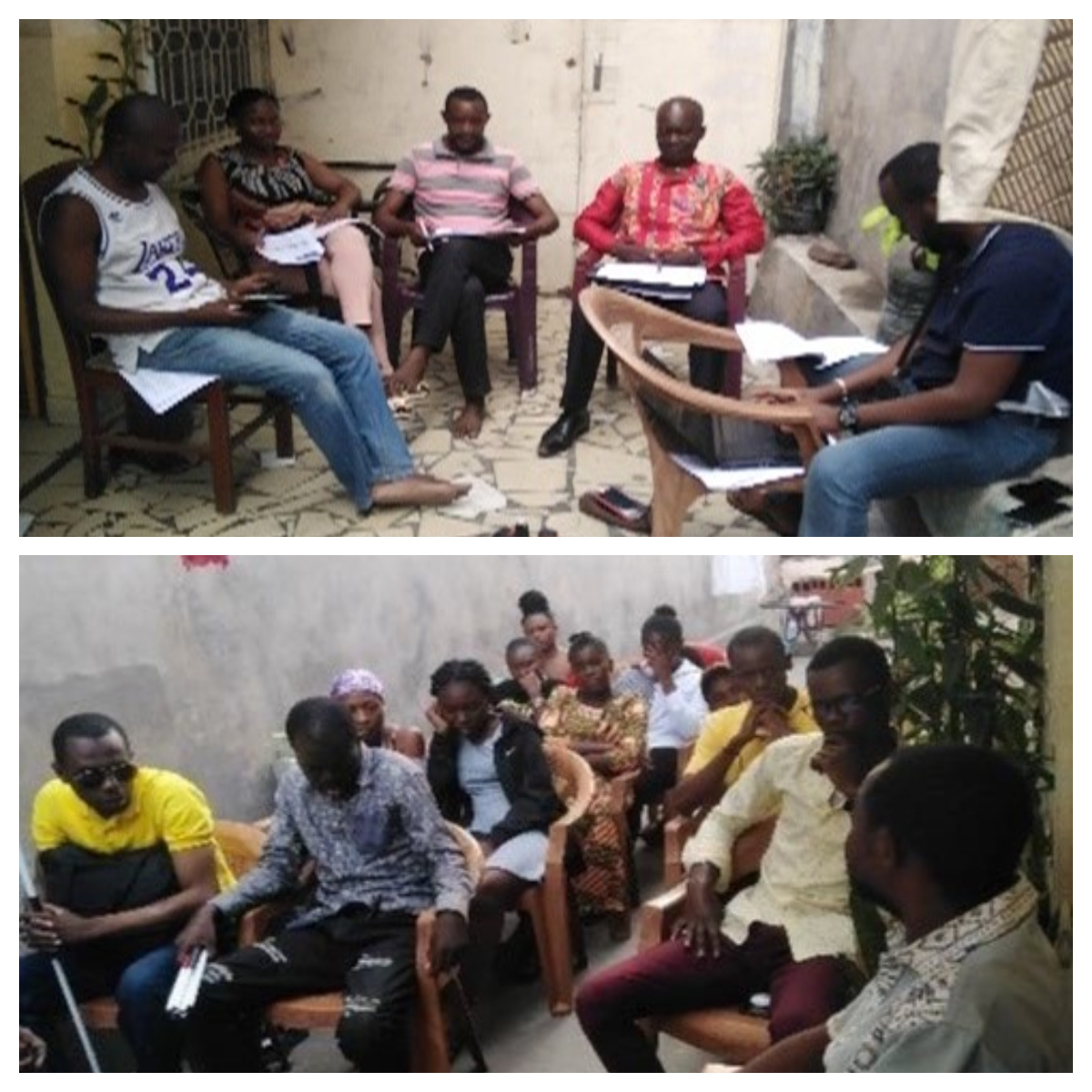
In their analysis, the young Congolese also noted that training, whether technical or university-based, is scarce. As a result, young people are forced to accept precarious employment conditions with low wages, particularly in the trade, service and agricultural sectors, or informal jobs that are poorly paid and exploitative. This context generates a constant sense of uncertainty and frustration and, in other respects, an increase in delinquency. It also has more serious consequences, particularly in the lives of women, who also have to contend with inequality and discrimination.
This reality became much more visible during and after the pandemic, as discrimination, sectarianism and increased informality were clearly perceptible and had a major impact on young people's personal projects.
So, what were the next steps taken by young people in the YCW to deal with this reality?
In July 2022, they identified their main needs. The grassroots group leaders decided to develop a training program for young people on topics such as self-confidence, public speaking and leadership; gender violence in the workplace and equality between men and women; YCW methodology; a citizenship training workshop; expanding IT and office skills; the solidarity economy as a form of organization, employability and decent employment. Another important topic was the discussion and debate on public policies and participation in the Youth Council (employment and citizenship training).
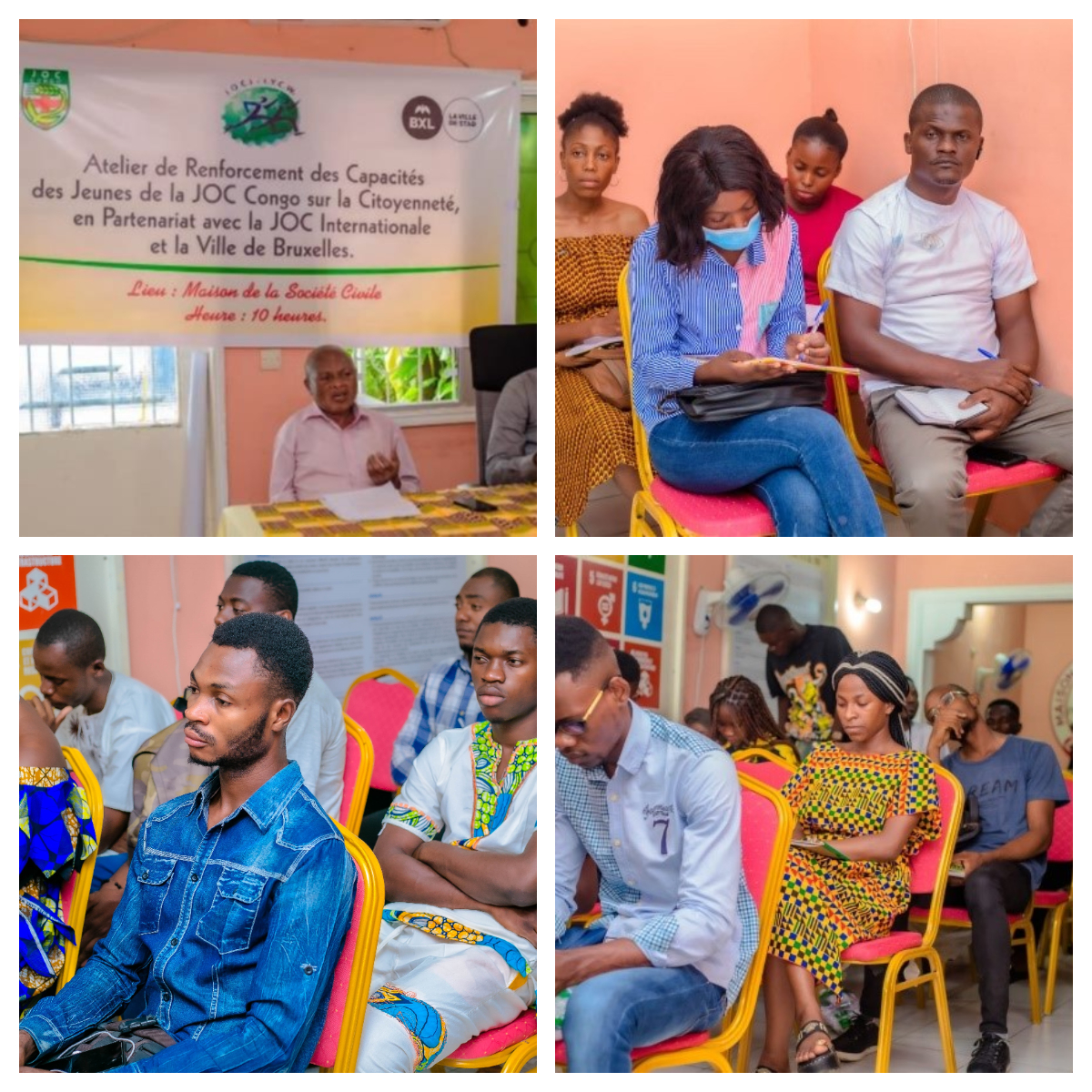
These themes were identified as important for changes leading to dignity and for strengthening youth leadership. As a result, they were able to draw up a training program and set up a training team, in which they actively participated in the call for applications, helped manage the training spaces and recruit trainers for the various themes, and took responsibility for other technical aspects.
The training program was divided into two parts: technical training and political training for young people, complemented by the YCW's "See, Judge, Act" method.
Over 60 young people took part in the planned activities, including visually impaired young people and many young women.
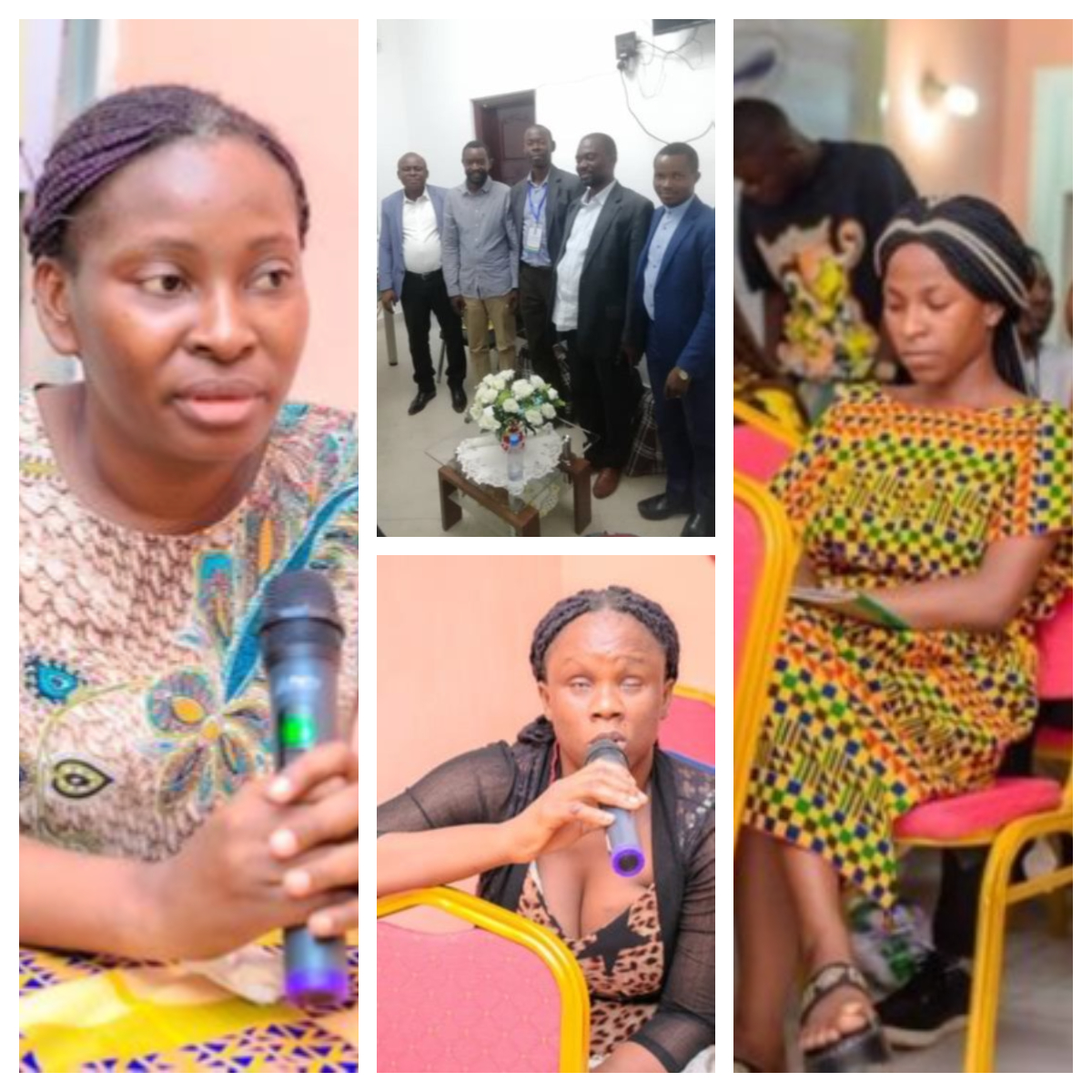
What were the results?
This process has not only helped to plan new actions but has also strengthened the process of organizing young people in the YCW, empowering them and making them aware of their own reality. It has also increased the interest and participation of new young people in the movement.
Training in the YCW method has strengthened young people's personal and collective capacities to lead more dignified lives, plan new actions and continue to organize. It also gave them a better understanding of how to influence public policy in favor of youth through their participation in the Youth Council.
Technical training (computer, internet, job search, organization of cooperatives) has boosted the chances of employability.
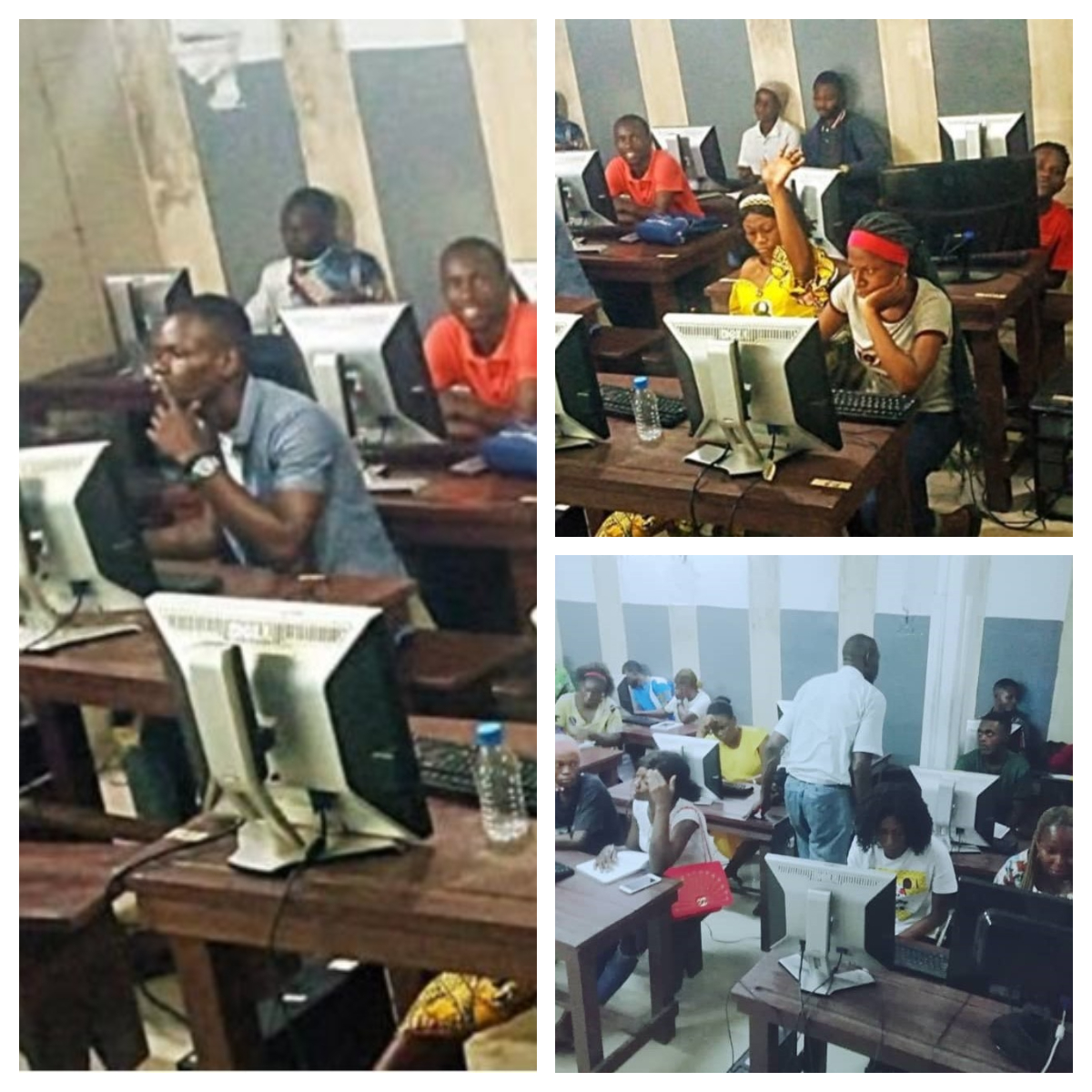
What are the challenges facing Congolese YCW youth?
It is worth mentioning that the movement provides ongoing training, including through action and through the practice of the Review of Life and Worker Action, so one of the major challenges we face is to ensure the follow-up and accompaniment of actions in order to guarantee the continuity of each process implemented, in particular: continuing the training of young leaders and having the necessary impact on Congolese society; materializing actions based on the training received, e.g. organizing computer courses, including for visually impaired young people; planning resources to develop their various activities and actions; continuing to reflect on their life situation and broaden their knowledge on different topics.
Congolese youth play a leading role in society!

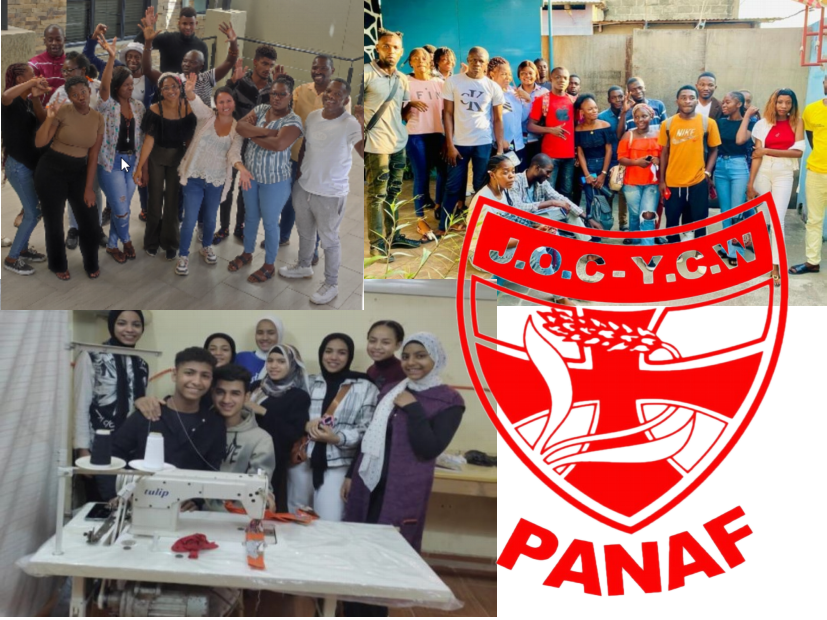

 English
English  Español
Español  Français
Français